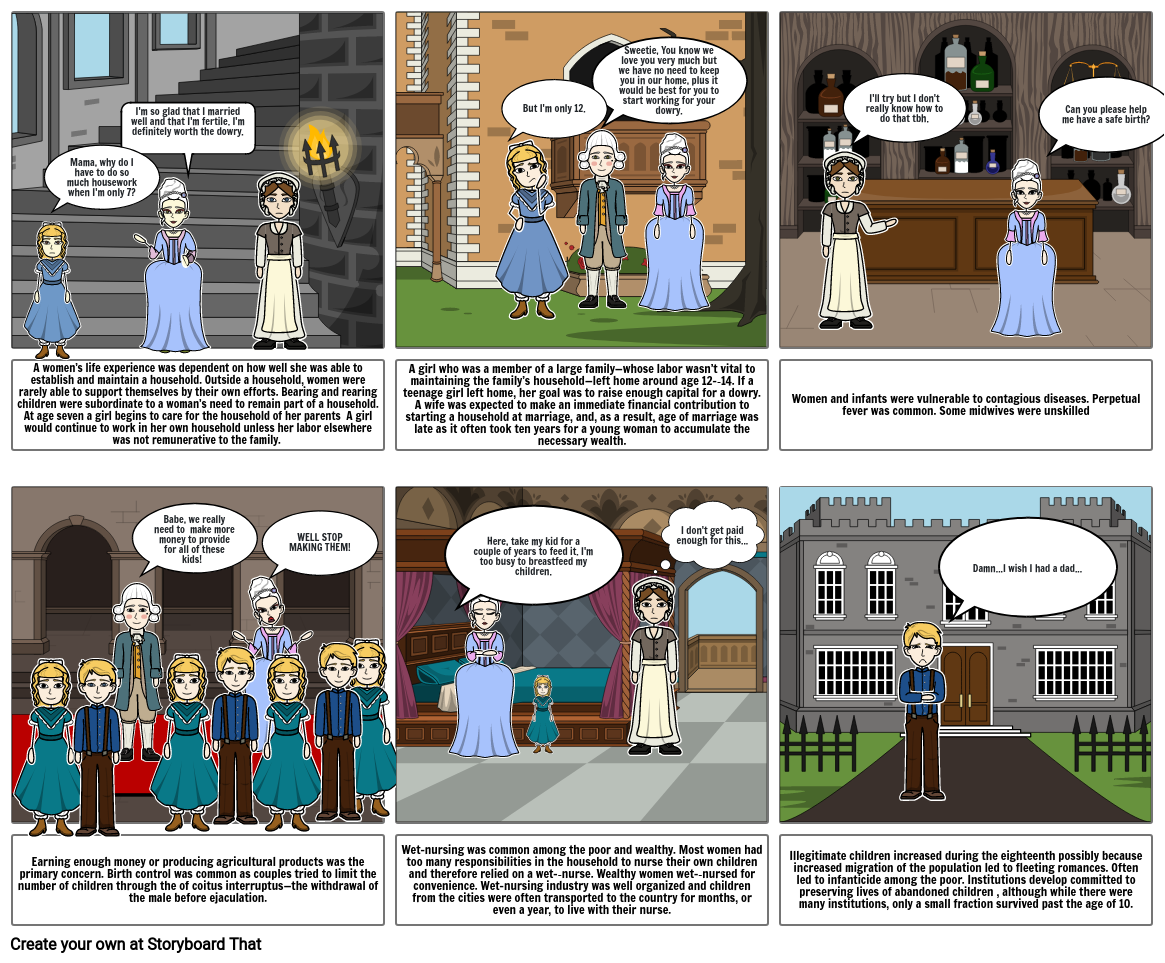AP Euro

Storyboard Text
- Mama, why do I have to do so much housework when I'm only 7?
- I'm so glad that I married well and that I'm fertile. I'm definitely worth the dowry.
- But I'm only 12.
- Sweetie, You know we love you very much but we have no need to keep you in our home, plus it would be best for you to start working for your dowry.
- I'll try but I don't really know how to do that tbh.
- Can you please help me have a safe birth?
- A women’s life experience was dependent on how well she was able to establish and maintain a household. Outside a household, women were rarely able to support themselves by their own efforts. Bearing and rearing children were subordinate to a woman’s need to remain part of a household. At age seven a girl begins to care for the household of her parents A girl would continue to work in her own household unless her labor elsewhere was not remunerative to the family.
- Babe, we really need to make more money to provide for all of these kids!
- WELL STOP MAKING THEM!
- A girl who was a member of a large family—whose labor wasn’t vital to maintaining the family’s household—left home around age 12-‐14. If a teenage girl left home, her goal was to raise enough capital for a dowry. A wife was expected to make an immediate financial contribution to starting a household at marriage, and, as a result, age of marriage was late as it often took ten years for a young woman to accumulate the necessary wealth.
- Here, take my kid for a couple of years to feed it. I'm too busy to breastfeed my children.
- I don't get paid enough for this...
- Women and infants were vulnerable to contagious diseases. Perpetual fever was common. Some midwives were unskilled
- Damn...I wish I had a dad...
- Earning enough money or producing agricultural products was the primary concern. Birth control was common as couples tried to limit the number of children through the of coitus interruptus—the withdrawal of the male before ejaculation.
- Wet-nursing was common among the poor and wealthy. Most women had too many responsibilities in the household to nurse their own children and therefore relied on a wet-‐nurse. Wealthy women wet-‐nursed for convenience. Wet-nursing industry was well organized and children from the cities were often transported to the country for months, or even a year, to live with their nurse.
- Illegitimate children increased during the eighteenth possibly because increased migration of the population led to fleeting romances. Often led to infanticide among the poor. Institutions develop committed to preserving lives of abandoned children , although while there were many institutions, only a small fraction survived past the age of 10.
Over 30 Million Storyboards Created

